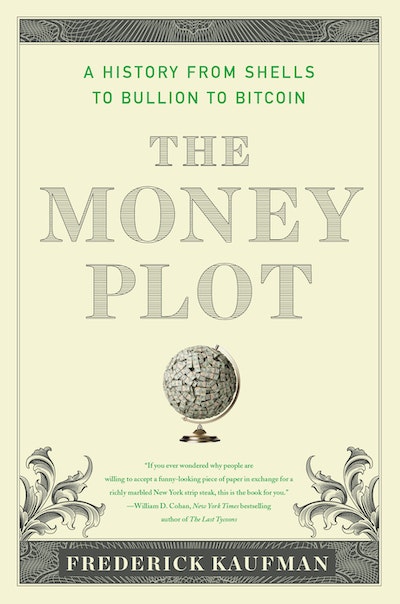- Published: 10 January 2023
- ISBN: 9781635423150
- Imprint: Other Press
- Format: Paperback
- Pages: 304
- RRP: $49.99
The Money Plot
A History of Currency's Power to Enchant, Control, and Manipulate
- Published: 10 January 2023
- ISBN: 9781635423150
- Imprint: Other Press
- Format: Paperback
- Pages: 304
- RRP: $49.99
“There is a lot of erudition in Mr. Kaufman’s analysis of money as a form of storytelling. The word for semiotics, or the study of symbols, Mr. Kaufman notes, comes from ‘the ancient Greek word seme, which means both “word” and “coin.”’ The history of money is the history of communication systems. Like language, money is rooted in arbitrary custom even as it expands into the basis for rational cooperation among strangers. The word credit comes from the Latin word credere, which means ‘to believe.’ All money depends on the faith of those who use it. And like any powerful belief, money can be exploited by some to manipulate the minds of others.” —Wall Street Journal “Fascinating…Kaufman has a sharp eye for colorful anecdotes and a witty and incisive prose style. The result is an appealing compendium of musings and money-related minutiae.” —Publishers Weekly “[A] scholarly history of cash and its metaphorical significance…Tracing the impact of the rise of financial markets, Kaufman links events and ideas as disparate as Richard Nixon’s decision to untether the dollar from gold and Claude Lévi-Strauss’ concept of the ‘floating signifier.’” —Kirkus Reviews “You’ll often hear people say, either jokingly or seriously, that ‘Money isn’t real.’ Debt is a fiction with real consequences. But why have such fictions been so hard to escape? Why can’t we just get rid of money? Kaufman’s engagement with these questions obviously comes at a time when economic inequalities have been exacerbated in arbitrary, unprecedented ways.” —Literary Hub “In this unusual and original book, Frederick Kaufman tells the history of money in its double guise as a medium of exchange and a symbol of value. In its first form it strives for fixity, but as a symbol of our fluctuating hopes, fears, and desires, fixity perpetually eludes it. Being a measure of our freedom to dream, money can never be given a fixed value in a free society. Required bedtime reading for central bank governors tasked with ‘controlling the money supply.’” —Robert Skidelsky, Emeritus Professor of Political Economy at Warwick University and coauthor of How Much Is Enough? “Fascinating. An irreverent, grand, and captivating history tour of money: what it is and what it does to each and all of us.” —George Papaconstantinou, former finance minister of Greece and author of Game Over: The Inside Story of the Greek Crisis “With well-deserved authority and a pleasing narrative flair, Frederick Kaufman explores the origins of money—why we have it, where it came from, and what it means today. If you ever wondered why people are willing to accept a funny-looking piece of paper in exchange for a richly marbled New York strip steak, this is the book for you.” —William D. Cohan, New York Times bestselling author of House of Cards and The Last Tycoons “In The Money Plot, Frederick Kaufman masterfully unravels the fascinating tale of money as an ever-changing reflection of whatever people believe or need it to be, and as defined by historical period, perspective, and circumstance. From beads to gold to paper to bitcoins to yes, bacon, Kaufman takes us on a journey through a remarkable diversity of leaders, events, relationships, and products to provide a provocative biography of money itself. A must-read for anyone wondering just how much money central banks can create, how high can markets go, and how much speculation we can endure—before the next crisis.” —Nomi Prins, author of Collusion: How Central Bankers Rigged the World



